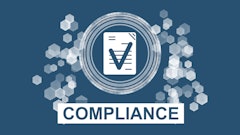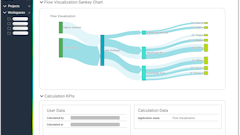We all know that good data is essential to successful supply chain operations. Corporate data is a strategic business asset, after all. In many cases enterprise content and business data have become as valuable as inventory, manufacturing facilities and personnel. And all of it plays an important role in the supply chain.
According to A.T. Kearny, companies lose $40 billion, or 3.5 percent of sales, each year because of bad supply chain data. Therefore, it's critical for supply chain decision makers, knowledge workers and partners to have timely access to consistent and accurate data. The information technology function must also be able to integrate and standardize content and data information systems ranging from planning and engineering through to procurement, fulfillment, customer service, sales and marketing.
Allied Electronics' Data Conundrum
If you're a major electronics distributor that distributes over 550,000 catalogs annually and has more than 500,000 parts online and more than 135,000 products in your catalog, you'd better think twice about the integrity of your data and how it will not only affect your internal operations, but those in the supply chain as well.
With roots that go back to 1928, Fort Worth, Texas-based Allied Electronics recently completed a database migration to a new system that was intended to enrich their Web and print catalogs so that customers, suppliers and partners had better information about the parts they were procuring.
Allied knew that data migrations are often fit for failure because bad or "dirty" data is often overlooked by IT teams. A bad migration and dirty data often results in a disruption across the supply chain. Allied's challenge was to make sure that "dirty data" did not corrupt their migration and ultimately operations.
Allied turned to ByteManagers Inc., a Chicago-based enterprise content services firm that delivers strategy and content production services focused on data cleansing, conversion, enrichment, deployment and content maintenance, to help them standardize, clean, normalize and correct their content data so it could be re-loaded into a new database system from Pindar Systems.
Allied Electronics, a unit of Eletrocomponents of the United Kingdom, has published a print catalog since 1928 and a Web catalog since 1995. Allied's products fall under several technology groups, including test & measurement, interconnect, enclosure products, power, control, passive & active, production supplies, and tooling. Much as their catalog has changed over the years, so too have the tools and technologies to deliver superior customer service. When Allied chose to upgrade to a new system from Pindar Systems that would help them more easily publish both catalogs at the same time, they took a very careful look at the integrity of their data.
Data Diving
Although Pindar's content database management system was state-of-the-art, like many systems today it's only as valuable as the data that goes into it. According to Allied, prior to Pindar this data was in bits and pieces spread across the enterprise in various silos. Content and other data came in the form of Web pages, Quark files, Excel spreadsheets, PDF files, suppliers systems and legacy database systems. Although now captured in Pindar, data was inconsistent and not normalized. The sheer quantity of unstructured data and content ballooned to a point where staff man hours to complete the process overwhelmed the eight-person Allied staff.
Allied's content was typical of the size and scale that ByteManagers had successfully managed in the past. Allied's print catalog alone is over 1,900 pages, with 32 different sections, and a stock-keeping unit (SKU) count of 150,000 representing products from 320 different suppliers.
Each of the products that Allied sells has a number of attributes, and because these attributes were inconsistent, they found that much of what was in their catalog was showing up in different places within the system. Allied's primary objective for this project was to cleanse and normalize data on the Pindar content database management system and fully leverage the rich attributes that the system promised.
ByteManagers worked closely with Allied on a year-long effort to cleanse and normalize data for the newly implemented content database management system. Starting from scratch, ByteManagers' consulting services identified 10 to 16 attributes for each of Allied's technology. ByteManagers then tied those attributes to a given technology and captured them in a way that was easily recalled by the Pindar system. The result: a completed project that increased the value of Allied's database asset.
"To be effective, we need to ensure that our data is clear, accurate and up-to-date for our suppliers, partners and customers. Our data taxonomy and attributes must be accurate, standardized and clean," said Picky Malhotra, Allied's director of content. "After reviewing other available services, we concluded that ByteManagers not only provides the most flexible offering, it also provides the most comprehensive support for implementing standard practices across a complex catalog — both print and online."
Rob Stowell, ByteManager's vice president of operations said, "The need for data cleansing and normalization may seem obvious, but there are many difficulties to overcome in finding appropriate processes. Suppliers, customers and even trained data professionals may not have experience with the intricacies of the content and its data. A simple fuse may have as many as 10 different attributes. By implementing sound data cleansing and normalization procedures across the enterprise, companies can greatly reduce their risk of disruption — both internal and external."
What a Little Cleaning Will Do
Allied is very pleased with ByteManagers results. Based on ByteManagers' work, Allied has deployed 40,000 data sheets for over 120,000 SKUs, which are now available to their customers to aid their purchase decisions. With clean and normalized data provided by ByteManagers, Allied will be leveraging this data to build their new print catalog, enrich the online catalog and power a new sophisticated search engine.
Overall, Allied estimates that ByteManagers services and solutions helped drive incremental double-digit sales revenues as well as drive out double-digit production costs. Allied Electronics is so pleased with the results that they have elected to retain ByteManagers consulting team for an on-going, undisclosed period of time.
Added Picky Malhotra: "Cost and time savings are only part of the story. ByteManagers is helping us increase our customer service levels, improve relationships with our partners and drive additional revenue growth through our catalogs."
In this case, clean data does seem to deliver the goods.


























